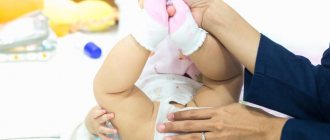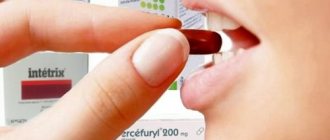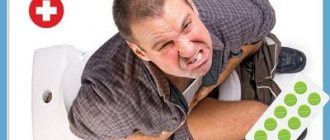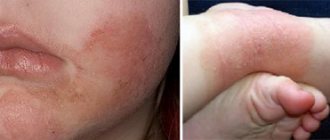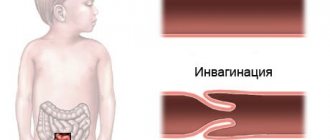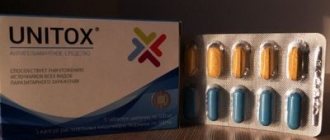The article was prepared by a specialist for informational purposes only. We urge you not to self-medicate. When the first symptoms appear, consult a doctor.
Water takes part in all processes occurring in the body. Dehydration is dangerous, as it leads to metabolic disorders and the development of various diseases. However, dehydration itself can be a symptom of pathology. Therefore, it is so important to know as much information as possible regarding this condition. Doctors call dehydration dehydration.
The body's need for water
The human body can not only accumulate, but also retain nutrients for a long time. This is only possible if it does not experience a water shortage. In general, a person cannot survive without it for more than 3 days. Liquid accounts for about 2/3 of the total body weight. Even a slight decrease in water level causes serious disturbances. The fact is that cells cannot maintain their existence in an overly viscous environment.
The system that ensures the balance of biochemical processes in the body is called homeostasis. If it is disrupted, then the normal functioning of organs and systems becomes impossible.
Fluid in the human body can be in 3 states:
- Blood that circulates through blood vessels.
- Intercellular fluid, which is located in the intercellular space.
- Intracellular fluid that contains all the structures of living cells.
Water is very important for cells, as it is a nutrient medium for them.
As the body ages, the volume of water in it begins to decrease. In children who have just been born, it makes up 80% of their total body weight. In adults, this figure drops to 60%. Children lose fluid much faster than adults. This is due to the fact that the system that controls water-salt metabolism is poorly adjusted in them.
By the age of 70, the indicators of intracellular and intercellular fluid decrease from 1.1 to 0.8. This negatively affects the functioning of all internal systems. Therefore, doctors strongly do not recommend that people make themselves thirsty. You need to drink water as often as possible. Water provides nutrition to cells, but dehydrated cells cannot work normally.
First symptoms
The first symptoms of dehydration include:
- Thirst.
- Drying of mucous membranes.
- Fatigue and weakness.
- Losing weight. A person with dehydration loses at least 5% of their body weight.
Older people do not suffer from thirst as severely as younger people.
Therefore, it is important to pay attention to other signs of dehydration:
- Lack of desire to eat.
- Unexplained feeling of tiredness.
- Drowsiness.
- Increased body temperature.
How this article was written
The information presented in this article is based on expert advice published by trusted (medical and government) sources such as the American Pediatrics Association and the American College of Obstetricians and Gynecologists. A complete list of links to sources used to write this article can be found at the end of the article. The information on this page is not a substitute for professional medical advice. Always consult your doctor for diagnosis and treatment.
Types of dehydration
Depending on the nature of fluid loss and how long ago dehydration developed, there are 3 types:
Hypertonic (water deficiency, intracellular) dehydration.
This type of dehydration occurs when excess water is removed from the body. This situation occurs with severe diarrhea, against the background of elevated body temperature, with dyspnea and hyperhidrosis. At the same time, the level of electrolytes in the blood plasma increases (most of all sodium salts become).
To replenish the loss of water, intercellular fluid begins to enter the bloodstream, which leads to an increase in osmotic pressure. To normalize it, the cells themselves begin to release water into the intercellular space. As a result of this process, dehydration of the body develops.
Its main symptoms:
- Thirst and dry mouth.
- Dry skin.
- Impaired consciousness.
- Muscle spasms.
- Increased body temperature.
- Decreased amount of urine excreted.
Hypotonic (hypoosmotic, extracellular) dehydration
. This type of dehydration occurs because the body loses more electrolytes than water. The osmotic concentration of the blood begins to decrease. This situation occurs with profuse vomiting, which is much stronger than diarrhea.
To normalize hemostasis, the body sends sodium salts from the intercellular space into the bloodstream. In this case, water from the bloodstream passes into the interstitium of the cells. As the osmolar concentration of the intercellular fluid decreases, it begins to penetrate into the cells. Potassium electrolytes are displaced from the cells and excreted in urine. There is too much water in the cells, as most of the liquid rushes inside them.
Symptoms of this type of dehydration include:
- Flabbiness of the skin.
- Dry eyes.
- Lack of desire to drink water.
- Dyspnea.
- Increased heart rate.
- Vomiting that develops after drinking water.
Isotonic dehydration
. This type of dehydration occurs because both water and electrolytes are removed from the body at the same time. There are equally few of them in the lymph flow, blood and tissues. Osmolarity and the level of sodium ions in the blood remain normal. It is isotonic dehydration that occurs most often. The patient's well-being can reach moderate severity, but sometimes severe dehydration of the body is observed.
Symptoms of isotonic dehydration are as follows:
- Increased heart rate.
- Slight thirst.
- Deafness of heart sounds.
Oralit
This anti-dehydration drug is not as balanced as the previous one, but it also works great to restore fluid balance. Ingredients of Oralit: table salt, sodium bicarbonate, potassium chloride, glucose. The product contains the most necessary components to relieve first or second degree dehydration. Oralit is suitable for children who do not want to drink on their own - in small portions (10-15 ml) every 15 minutes. It can be taken from a spoon or through a syringe without a needle. A child needs about 1 glass of solution per kilogram of weight per day, and the dosage cannot be increased. If a newborn is dehydrated, the solution prepared according to the instructions must be diluted twice more with water, because the preparation contains too much sodium for the baby.
Oralit
Oralit is a rehydrating agent for normalizing electrolyte and energy balance. Method of administration: oral. Reduces or prevents dehydration. Effectively restores lost potassium, sodium and water. Used to restore fluids and lost electrolytes during diarrhea. Normalizes acid-base and water-electrolyte balances disturbed by dehydration. Metabolic acidosis is maintained by glucose through the absorption of citrates and salts.
345
- Like
- Write a review
Dehydration levels
There are 4 degrees of dehydration, which depend on the amount of fluid lost:
- Mild dehydration.
The body loses 1-3% of water, but no more than 1.5 liters. Hospitalization is not required; lost fluid is replaced by oral dehydration. It is recommended to take a few tablespoons of water every 15 minutes. Recovery occurs quickly and no medical attention is required.
- Moderate dehydration
. Water losses are 3-6%, but not more than 3 liters. If it is not possible to restore the fluid lost by the body at home, then medical attention is required. The doctor recommends taking Regidron, since it will not be possible to stabilize the patient’s condition with water alone.
- Severe dehydration.
Fluid losses are 6-9%. The patient is urgently hospitalized and is given an IV in the hospital room. Self-medication can lead to serious complications.
- Significant dehydration develops when water loss exceeds 10%.
In such a situation, the patient develops problems in the functioning of internal organs, and death may occur.
Causes of dehydration in adults
The following reasons can lead to dehydration:
- Acute intestinal infections accompanied by diarrhea and vomiting.
If the patient develops vomiting, then digestive juices and liquid contained in the upper parts of the digestive system come out. Together with it, sodium, potassium and chlorine ions leave the body. During vomiting, the patient cannot replenish fluid reserves orally. When a person develops diarrhea, fluid leaves the body very quickly because the pressure of the blood plasma is higher than the pressure inside the intestines.
- Diseases in which the body temperature rises greatly.
Dehydration due to infectious diseases occurs due to high body temperature and shortness of breath. Sometimes vomiting and diarrhea increase water loss. High body temperature always leads to fluid loss. Patients direct their efforts to achieve sweating. To do this, they take as much tea as possible, but the loss of water in this case will be even more significant.
- Consumption of large amounts of coffee, tea, carbonated drinks.
If a person drinks a lot of coffee, tea, beer or alcoholic beverages, then he supplies the body not only with water, but also with components that contribute to dehydration, such as caffeine. It has been proven that when taking these drinks, water loss is higher than its intake into the body.
- Taking medications: indapafone, diuretics and some others.
As for taking medications, the body will spend water to absorb any drug. This contributes to increased dehydration. Moreover, in 90% of cases, people take drugs without real need and without medical advice. Fighting the symptoms of the disease, and not its root cause, leads to the fact that health deteriorates even more.
- Water leaves the body every day through sweat.
An active person sweats during sports. Therefore, when going to training, you must take water with you.
- Frequent urination.
It is observed in people with diabetes, in which the process of glucose absorption in the body is impaired. If the pancreas produces little insulin, the person will suffer from extreme thirst. The more he drinks, the more often he goes to the toilet. Similar symptoms may occur with diabetes insipidus. This disease develops due to a deficiency in the body of the antidiuretic hormone of the pituitary gland. The patient also suffers from extreme thirst and urinates frequently.
- Situations in which water does not enter the body for a long time.
Children lose a lot of water when they actively move and play. Physical activity is the norm for children, but fluid volumes must be replenished in a timely manner. Adults need to supervise this.
Gastrolit
"Gastrolit" contains sodium chloride, potassium chloride, sodium bicarbonate, glucose. In addition, the composition contains chamomile, which has an antimicrobial effect and “calms” the gastrointestinal mucosa during intestinal infections. To prepare a rehydration solution, you need to dissolve a packet of Gastrolite in a glass of hot water and wait until it cools down - you get a medicinal drink with an optimal set of electrolytes.
Gastrolit
TEVA, Ukraine
The drug replenishes water and electrolyte losses resulting from acute diarrhea and relieves metabolic acidosis. Chamomile extract additionally has an anti-inflammatory, antiseptic and antispasmodic effect on the intestines.
242
- Like
- Write a review
When to seek medical help?
It is necessary to seek medical help in the following cases:
- Profuse diarrhea does not stop within 2 days.
- Vomiting continues for more than a day.
- Body temperature rises to 39 °C and above.
- The patient experiences a loss of strength.
- Little urine comes out, the person rarely goes to the toilet.
- Weight decreases quickly.
Sometimes situations arise in which you need to call an ambulance:
- Body temperature reaches 40 °C.
- No urination for 12 hours.
- The patient's orientation in space deteriorates, fainting occurs, or he becomes lethargic and apathetic, has a severe headache or pain in the chest.
- The pulse becomes thread-like, breathing becomes difficult, and convulsions occur.
If in such a situation a person is not provided with medical assistance, he may die.
Diagnosis of dehydration
Diagnosis of dehydration comes down to examining the patient, performing various tests, blood and urine tests. It is important not only to state the fact of dehydration of the body, but also to find out the cause of its occurrence.
Health indicators assessment:
- If the patient has a high body temperature, low blood pressure, breathing and heart rate are rapid, then these are symptoms of dehydration.
- Assessment of pulse and blood pressure levels in a lying and standing position. When a person lies down and then gets up, the pressure decreases slightly, then the heart rate increases and the pressure returns to normal. When a person becomes dehydrated, there is not enough blood circulating in the body. Therefore, the heart will always beat faster, the head will begin to feel dizzy when rising, and the person will experience weakness.
Submitting urine for analysis:
- Assessment of the color and transparency of urine, its specific gravity and the presence of ketone bodies in it. All these signs allow you to diagnose dehydration.
- If glucose is present in urine, this may indicate developing diabetes mellitus.
- Kidney disease is indicated by the presence of protein in the urine.
- Sometimes urine allows one to suspect certain infections.
Blood analysis:
- In terms of diagnosing dehydration, it is important to assess the level of salts, electrolytes, glucose, protein and creatinine in the blood.
- A biochemical blood test allows you to clarify the presence of an infectious process.
- The blood may be sent for additional research. The need for them is determined by a doctor.
What to drink if you are dehydrated at home?
To replenish the body's reserves of water and salts, you need to add salt solutions to the water, or prepare them separately.
Drugs used for rehydration:
- Gastrolit.
- Hydrovit.
- Orasan.
- Orsol
- Registrar.
They are available in powder or granule form, which quickly dissolve in water. You can prepare a saline solution yourself by adding a spoonful of salt to the water (you will need a teaspoon of sodium chloride per liter of liquid). You need to drink not because you are thirsty, but because it is a necessity. The closer the temperature of the liquid is to the human body temperature, the faster it will be absorbed.
Dehydration in children can be treated at home only if it is mild. A child is offered the same medications as an adult. They are drunk in quantities in which the liquid is removed from the body. If the child is an infant, then he needs to be fed through a syringe without a needle.
You can only cope with mild dehydration at home. In other situations, you must consult a doctor.
Regidron
Probably the most commonly prescribed drug for dehydration. The powder contains: sodium chloride, potassium chloride, sodium citrate and dextrose (D-glucose). The ideal balance of sodium and glucose is maintained here, so Regidron is considered the best remedy for absorbing water and reducing the load on the intestines. The drug also contains sodium citrate (citric acid salt), which improves energy metabolism. "Regidron" not only restores the water-electrolyte balance, but also the acid-base balance. The product is indicated for diarrhea, moderate vomiting, and severe sweating. It’s easy to prepare the solution – you just need to dissolve a bag of powder in 1 liter of cool boiled water.
Regidron
Orion Pharma (Orion Pharma), Finland
- oral rehydration and prevention of dehydration in acute diarrhea accompanied by mild to moderate dehydration.
from 18
706
- Like
- Write a review
Drugs prescribed for dehydration in medical institutions
Moderate and severe dehydration should be treated with IV drips. This is the only way to quickly restore fluid loss and lost blood volumes. For this, Ringer's solution, saline, glucose, trisol, disol are used. Hemodez and Poliglyukin are prescribed when it is necessary to relieve symptoms of intoxication from the body. They are indicated for bleeding, as they prevent further removal of fluid from the body.
If the patient's body temperature rises, it must be brought down using antipyretic drugs.
To eliminate vomiting, antiemetics are prescribed, for example, Osetron.
Drugs such as Gastrolit, Regidron, Oralit or other powdered salt preparations are used only as an auxiliary treatment.
Humana Electrolyte
Children do not refuse to drink this banana-flavored drug, which is very important. “Humana Electrolyte” with banana is prescribed for children from three years of age; for newborn babies there is “Humana Electrolyte” with fennel. The product is excellent for treating dehydration for almost any reason: vomiting, diarrhea, increased sweating, intestinal infection, hormonal imbalance, etc. Humana Electrolyte instantly restores the imbalance of electrolytes, replenishes fluid and minerals. One sachet of the drug should be diluted in a glass of water (250 ml). It is advisable to take warm boiled water or tea.
Humana Electrolyte
Effects of dehydration on various body systems
If severe vomiting and diarrhea lead to dehydration, then in addition to water, electrolytes are removed from the body in significant quantities. This causes water to move from the intercellular space into the bloodstream. Therefore, there is even less fluid in the general bloodstream.
Dehydration for the brain
The brain suffers from hypoxia as its blood supply deteriorates. Its natural protection in the form of the blood-brain barrier is reduced. The blood-brain barrier is the barrier between the capillary network and the neurons of the nervous system. They are the ones who normally prevent harmful substances from entering the central nervous system.
Dehydration and decreased barrier function lead to toxins entering the brain, which can later cause the development of Alzheimer's disease, Parkinson's disease, and multiple sclerosis.
Against the background of dehydration, the level of intracellular fluid first decreases to 66%, then the level of intercellular fluid decreases by 25%, after which 8% of water is removed from the blood. The body launches such a mechanism in order to provide nutrition to the brain. After all, it consists of 85% water. If the brain loses even 1% of fluid, it will lead to irreversible damage.
Dehydration and blood cells
Against the background of dehydration, processes such as:
- The blood is getting thicker.
- The lumens of blood vessels narrow.
- The blood becomes viscous.
- The likelihood of blood clots increases.
Due to dehydration, blood cells lose their natural activity and stick together. Such associates are unable to perform their functions correctly; they cannot leak through cell membranes, so blood fluidity deteriorates. It must be remembered that the clumping of red blood cells, leukocytes and platelets is the main factor leading to the development of atherosclerosis.
The immune system
The immune system reacts to dehydration by triggering chronic immunodeficiency diseases, such as bronchial asthma or scleroderma. This also includes infertility, bronchitis, systemic lupus erythematosus, etc.
Metabolism
Obese people may not even realize that their excess weight is a consequence of dehydration. The less water in the cells, the more they need energy, which they take from food. This promotes fat accumulation. Moreover, the source of such energy is often starches and proteins. Therefore, dehydration and obesity have a close relationship.
Preventing dehydration
To prevent the development of dehydration, the following preventive measures must be observed:
- If a person knows that he will sweat, he needs to provide himself with drinking water. Stress and physical activity lead to its removal from the body. You need to drink as much as you want.
- Do not exercise in the heat or in a hot room.
- It is necessary to ensure that children and the elderly receive sufficient water. They must have constant access to fluids. It is recommended that people with poor hearing drink more water.
- Don't drink alcohol in the heat
- In hot weather, you should always have a bottle of water with you. Clothes should be light so that the body does not suffer from the heat.
Diet
Water diet
- Efficiency: 3-4 kg in 1 week
- Terms: from 3 days to 4 weeks
- Cost of products: 100-200 rubles per day
During the period of dehydration, in addition to drinks to replenish fluid, it is recommended to introduce the following products into the diet:
- Potassium-containing foods - raisins, tomatoes, herbs, potatoes, bananas, oranges.
- Vegetable broths.
- Fruits – melon, grapefruit, watermelon, grapes, strawberries.
- Vegetables – zucchini, spinach, cucumbers.
It is recommended that children be given cereal-based porridges, steamed cutlets, broths, stewed or boiled vegetables, and dried vegetables.
During the period of dehydration, it is not recommended to drink tea, coffee, sweet soda, or alcohol.

